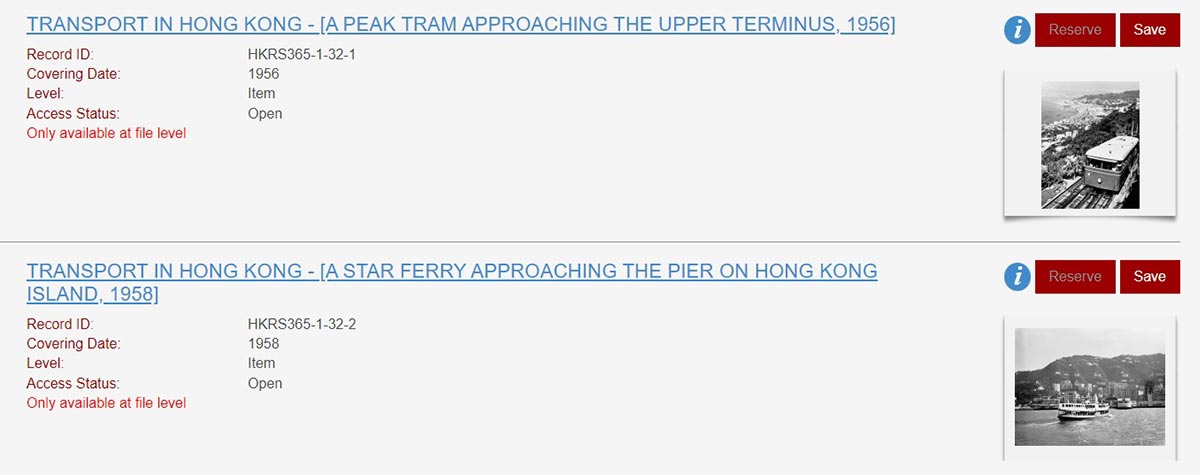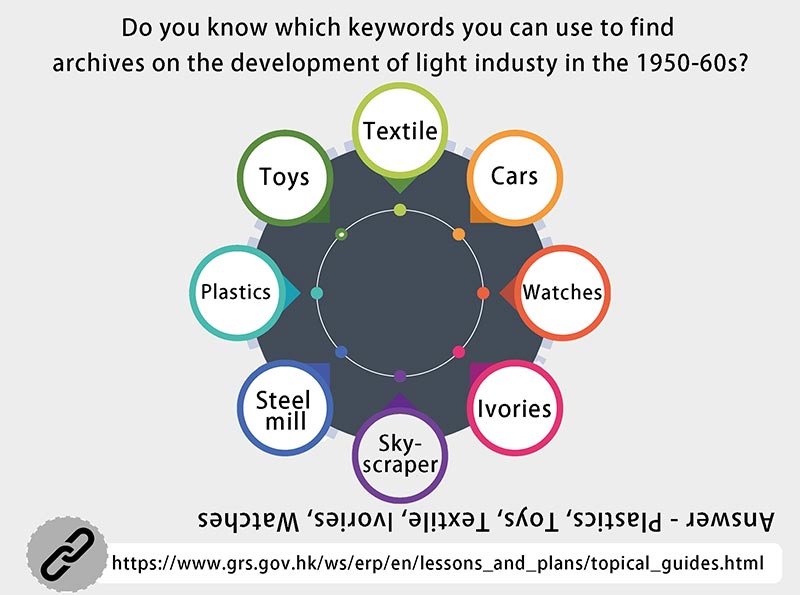Connection
Exploration / Guidance
“Archivists were the users’ ‘search engine’ before the age of online catalogue.”
“Sharp tools make good work.” Comprehensive finding aids help users search the holdings they need conveniently. Let our Assistant Archivist Mr Vito Chiu Chung-wai introduce you to the ways of exploring the “archival treasures” of the Government Records Service.
@PRO: More than an Online Catalogue
@PRO is no stranger to you if you have searched holdings through our online catalogue. It is more a multi-functional “integrated service platform” than only an online catalogue for users to search for collections by keywords. Through the comprehensive services of @PRO, users can create an account online, make an appointment to access records, apply for access to closed records, and even surf our digital collections. @PRO is only “one-click-away” to all the users’ needs.

Prior to the Online Catalogue
@PRO provides users with a “one-stop service” today. But how did users search holdings before online catalogues came into being?
Back then, archivists were the users’ “search engine”: their experience and knowledge of GRS’ holdings were what users relied on to find the holdings they needed. When users came to the Public Records Office (PRO) to search our holdings, they first told the archivists the subject of the required archives. The duty archivist then provided users with basic reference materials, such as newspapers, annual departmental reports, Hong Kong Sessional Papers and other Reference Library collections. These materials enabled users to make basic sense of the research topics and helped them narrow down their research scope to specific records. After the users specified a research topic, the duty archivist, based on his/her knowledge of government departments’ functions and structure, introduced them the relevant departments and provided them with the list of archives transferred from these departments for selection. In other words, the archivist had been the important bridge between users and holdings.
Reference Archivist in Repositioning
The emergence of online catalogue has significantly changed users’ searching practices, which were relatively more dependent on the duty archivist’s experience and knowledge. Users can search for holdings by keywords instead. Roles of the duty archivists are still important to users’ searching process, however. Their knowledge of the holdings and government departments’ functions is useful for guiding users to think of more precise keywords and suitable searching strategy. PRO has produced numerous finding aids for users to search its holdings more conveniently. One of them is the 50+ Topical Guides on popular types of holdings, available at the “Educational Resources Portal” on the GRS website. The indexes of the photo and video collections transferred from the Information Services Department, minutes of the Executive Council, documents of the Legislative Council, and collections purchased from overseas archives, are all available on-site to help users search their target holdings.

Technological advancement has eased the way of searching archives. But archivists will not feel at ease; they will continue to be a “facilitator” to create and improve online finding aids so that users can search for holdings more quickly and accurately.
